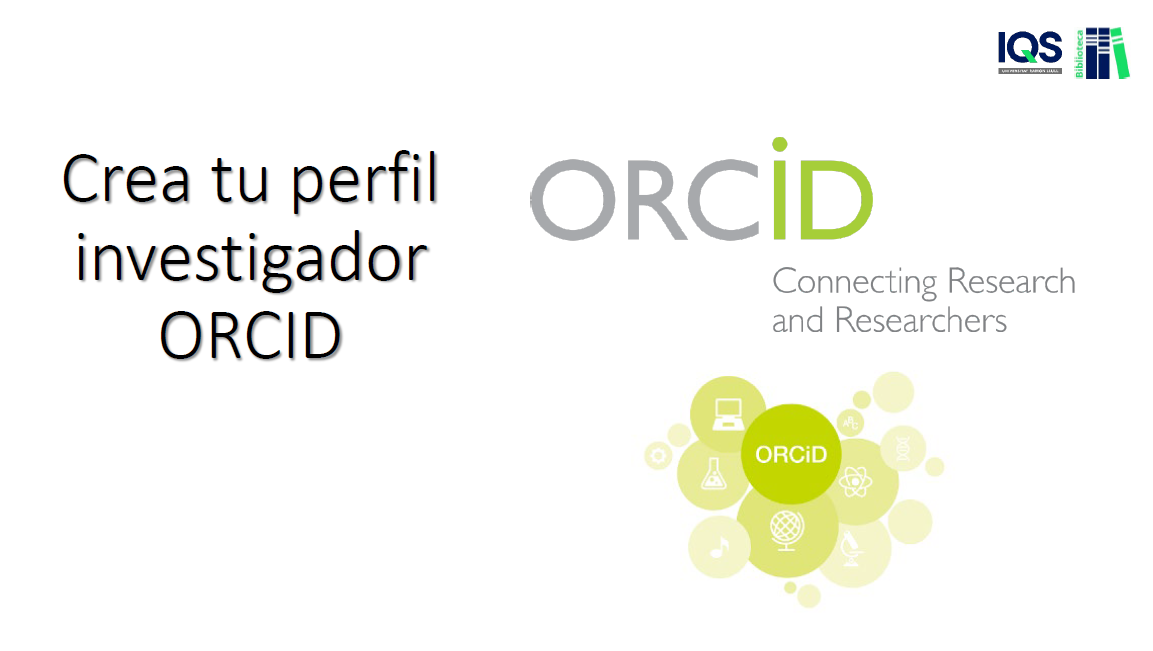Researcher profile
Why is it necessary to have a researcher profile? |
|
 |
Having a researcher profile allows:
|
IQS Library recommends you...
That you have your profile available and updated in the MERIT tool to be able to have your CV updated. In some evaluation processes they request to have your data updated in that tool or in the PRC.
That you have the ORCID researcher profile, because in some evaluation processes you will be asked for an ORCID code. It is important to have this profile updated, as it will help you increase the visibility of scientific production and, consequently, the impact of publications.
You can access to a tutorial (in spanish) to create your ORCID researcher profile and incorporate your publications in it:
In addition to the ORCID, it is advisable to have a ResearcherID (WoS) or Author Identifier profile (Scopus), as they show metrics and data analysis of the publications collected in these databases.
What tools or profile systems exist?
|
|
ORCIDThe ORCID Profile is a digital identifier composed of a 16 digit code and based on ISO 27729:2012 rule that allows the researcher a persistent and unambiguous identification to clearly distinguish their scientific production. It allows you to indicate your studies, your professional career, awards and affiliations, and scientific production. Catalan universities, through the CSUC, agreed to use this identifier for the production of research generated in them. |
ResearcherID (WoS)ResearcherID, is the researcher profile system of Web Of Science. It allows incorporating all the indexed publication in the WoS database, import and link ORCID, or import from other identifiers (PubMed, DOI) or files (CSV, RIS). It allows consulting metrics and results analysis from the profile itself (H index, citations, etc.). In addition, you can manage on the same profile reviews of academic articles (peer review) and see which articles have been reviewed. |
|
|
|
Author IdentifierThis identifier is automatically assigned to each person whose works are published in journals included in Scopus. It can be linked to ORCID, it provides a comprehensive report of citation metrics and even it requests corrections; but because it is an automatic identifier, the publications assigned to author profiles should be checked. |
|
|
Google ScholarYou must register in a Gmail account and set up a Google Scholar account to collect in it all the publications that appear in Google Scholar, the author's name and generate citation metrics. You can check the citations of the publications, calculating citation metrics or obtaining graphs, appearing in Google Scholar results (public profile), and selecting what type of update you want.
|







